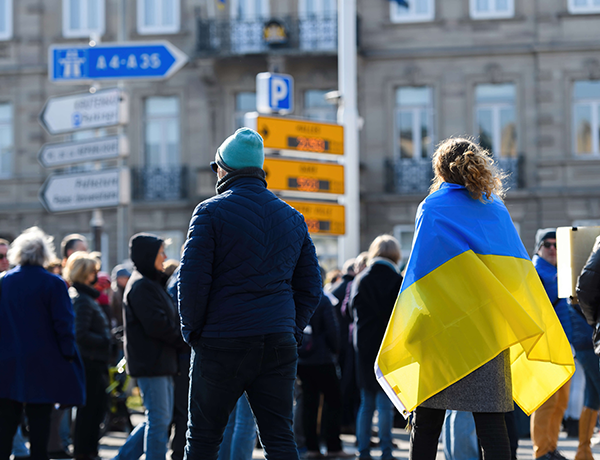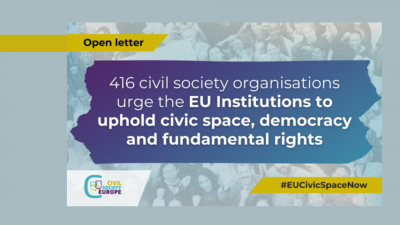
It is impossible to predict the end of the war in Ukraine and the end of the atrocities suffered by the people. Many refugees escaping the armed conflict seek safety in Poland. In addition to accessing protection and humanitarian assistance, those fleeing atrocities in Ukraine must also have the possibility to seek accountability. HFHR is documenting violations of international humanitarian and human rights law based on testimonies from refugees who experienced or witnessed such violations. We believe this is crucial for upholding the dignity and rights of the victims and survivors, and establishing lasting peace following the war's end.
HFHR emphasizes the need to create comprehensive justice mechanisms that would provide victims and survivors with the ability to seek justice “in the courtroom” for the harm suffered, and access to rehabilitation services designed to address, as much as possible, the consequences of the crimes.
What are the lived experiences our interlocutors talk about?
Being a refugee in the context of an armed conflict often means losing your home, your job and the safety of your everyday life. For some, it is also associated with being subjected to some of the most serious crimes under international law.
By January 2024, HFHR teams spoke to 1800 people and documented more than 100 testimonies. We want to thank every person who told us about their experiences despite the trauma of war. They told us about torture and inhumane treatment in places of detention and people’s homes, sexual violence, enforced disappearances, arbitrary detention, forcible transfers and, unfortunately, many others. The testimonies also confirmed multiple reports of indiscriminate attacks in which civilians were killed or injured, and civilian objects were destroyed and damaged. Most of the testimonies were provided by people who fled the territories occupied by the Russian Federation. They told us about the systemic threats and intimidation of civilians through actions, such as death threats and violence, the establishment of checkpoints restricting freedom of movement, house searches, limitations on economic activities or forced exchange of Ukrainian passports to Russian ones (“passportisation” policy).
Support for those affected by international crimes
Many survivors and witnesses wait years to see the perpetrators face justice. Furthermore, not everybody we have spoken to was prepared to seek justice “in the courtroom” (through the criminal justice system). Some might never decide to do so. At the same time, after a year and a half of speaking to people and documenting their testimonies, we see the need for establishing a comprehensive support system for those affected by the most serious crimes - following the guidelines of the United Nations, including the UN Basic Principles and Guidelines on the Right to a Remedy and Reparation. They need humanitarian aid, but also mechanisms to remedy the negative consequences of the crimes suffered. This includes provision of specialist medical care, psychological support or legal assistance to the victims.
The participation of Polish and Polish society in the restoration of justice
HFHR believes that, based on the international commitments of the Polish authorities, victims and survivors who are refugees in Poland must be provided with access to justice and rehabilitation in our country. At the same time, we recognize that there is still a need to adapt the Polish legal framework and create mechanisms to enable national courts to hear cases related to crimes under international law committed during an armed conflict. It is encouraging that the representatives of the Polish Government are publicly committing to support accountability efforts to punish the crimes of international law committed during the Russian Federation's aggression against Ukraine. This is especially relevant if we consider the history of Poland and war atrocities experienced on the territory of our country.


